|
Some weeks in the liturgical calendar are packed with all-stars! I am grateful that one of those weeks happens to be my birthday week. As I write this, I picture the saints lining up in order of their feast days just like we lined up in alphabetical order for lunch in elementary school. In the Cathedral of Los Angeles, Our Lady of the Angels, there is a beautiful tapestry that depicts the diversity of the saints as they stand side-by-side. If this lineup was based on feast day, St. Clare and St. Jane Frances would be next to one another. I imagine they would turn to one another and realize how much they have in common. Some of the many commonalities they share include having a best friend named Francis, founding a religious order, living in Europe, and finding great joy in serving the poor. In the Four Loves, CS Lewis writes, “Friendship is born at the moment when one man says to another ‘What! You too?’” When I studied abroad in Rome during college, I spent a weekend alone in Assisi walking in the footsteps of St. Francis and St. Clare. I prepared for this trip by reading a biography of St. Francis, I, Francis. For me, the most memorable part of the book was imagining Francis listening to Clare sing in the church choir and the way he felt when Clare shared his humble mission, chopped off her beautiful long hair, and donned a simple brown tunic. Visiting St. Clare’s incorrupt body in Assisi was astonishing; it seemed as if I could just wake her up from a nap and ask her all about her friendship with St. Francis. Her beauty radiates from her body today and I could only imagine what others experienced when they encountered her while she was alive. One day, while in grad school, I returned to my room after a retreat to find an icon of St. Jane Frances on my bed. My mom is named Jane Frances, so I was intrigued to learn more about this fascinating saint who experienced both married and religious life. She became a widow at thirty-two after her husband died in a hunting accident. On his deathbed, her husband forgave the man who killed him. Jane, however, was slower to forgive as she was deeply grieving. Eventually, she not only forgave the man, but also became the godmother of his child. Additionally, around this time, she began an eighteen-year-long correspondence through letters with Francis de Sales, who was only a few years older than her. He was the Bishop of Geneva and was the answer to her prayer for a spiritual director. They became fast friends and, as Francis wrote, “God, it seems to me, has given me to you. I’m more sure of it by the hour.” In my book Single Truth, I write how our “yes” is a gift and not an obligation. Love is focused on giving, not receiving. When we are grasping, we are not loving. While writing the book, I went on a yearlong dating fast. During this time, I felt more free to see men as brothers in Christ and not lose myself in the thought that everyone is a candidate for dating and marriage. I did not get distracted by what I may get from a person (i.e. relationship status or affection) and instead focused on being a friend. St. Clare and St. Jane were incredible models for faith and friendship. They both developed deep, authentic friendships with St. Francis of Assisi and St. Francis de Sales. They joined in their mission for the Kingdom and had friendships rooted in charity. To bring our focus back to the tapestry at Our Lady of the Angels, it is essential to notice how the saints are all facing the altar. St. Peter teaches us that keeping his eyes on Jesus allowed him to walk on water, but when he forgot who he was walking to, he sank. In our friendships, especially with the opposite sex, we can get distracted by our fleshly desires and human understanding. We grasp at and rush into something that is often less than what God intends for us. “It’s beautiful to be able to love on earth as we shall love in heaven.” – St. Francis de Sales Article 2347 of the Catechism reads, “The virtue of chastity blossoms in friendship. It shows the disciple how to follow and imitate him who has chosen us as his friends, who has given himself totally to us and allows us to participate in his divine estate. Chastity is a promise of immortality. Chastity is expressed notably in friendship with one's neighbor. Whether it develops between persons of the same or opposite sex, friendship represents a great good for all. It leads to spiritual communion.” Charity is a love that is directed outwardly instead of inwardly. If two people in a relationship try to out-love, out-forgive, and out-serve one another, there is a high probability that they will overcome whatever obstacles they face. St. Francis de Sales wrote to St. Jane Frances, “Never will it be possible for anything to separate me from your soul: our bond is too strong. Death itself would be incapable of undoing it.” As Easter people, we believe that death is not the end for those in friendship with Jesus. When loved ones pass away, we find hope in the Resurrection and look forward to seeing them again in Heaven. These four saintly friends have been powerful intercessors in this life and I am excited to share fellowship with them for eternity! Promotional Image Credit: https://angelusnews.com/voices/why-the-saints-can-do-great-things/
0 Comments
It’s that time of year where students set off for college, some for the first time and some going far away from home. These students take on the challenge of continuing towards adulthood and the process of making their faith their own. This can be a difficult road filled with numerous temptations, stresses, and other challenges. As someone who attended Catholic school for most of my life, I found the transition to college difficult, especially when it came to my faith. I attended a large public university where few practiced Catholicism, and I felt very isolated. The people who I attended Mass with at the beginning of the year began to slowly drift away – going to other churches or becoming too busy with academic commitments. With my class schedule it was hard to make it to the Catholic Student Union events and join the camaraderie. While I adjusted well to college life, I felt alone in my faith. Everyone has different experiences when it comes to the transition into colleges. Whether you are entering college for the first time, a current student wanting to get more in tune with your faith, or even a parent or relative of a college student(s), I’ve compiled some tips about keeping up with your faith life that can be helpful: 1. Make friends who challenge you to be your best selfMake friends wherever you go on campus, but remain close friends with those who continually challenge you to be your best. Many of my closest friends at college weren’t Catholic, yet they held me to remain true to my faith and myself without peer pressure. Just as a spouse is to help his or her partner grow in faith, so too should your friends. 2. Get InvolvedWhether you join the Catholic Student Union or other groups on campus, make sure you are busy. Becoming involved lessens homesickness and other temptations. Enjoy your college experience! 3. Go to Mass every SundayMark it on your agenda. Make sticky notes. Do whatever you need to do so that you attend Mass each week. Experiencing Christ every week in the Eucharist renews us and gives us strength. Fortunately, as Catholics we usually have a variety of Mass times to attend, so take advantage of that! 4. Challenge yourself and set goalsRegularly make short-term and long-term goals, and then try to stick to them. These can be anything from attending adoration regularly, going to daily Mass, setting aside prayer or Bible-reading time, or even studying abroad, trying new foods, and accomplishing a certain academic achievement. 5. Find time every day to pray and appreciate the beauty around youDoing this helps strengthen your personal relationship with God. Plus, you gain a better appreciation for life and develop practices that will stay with you after college. It’s not easy, but it matters that you try. 6. Call your family and your close friends one or more times a weekThese people are important foundations in your life. Keep them updated on your life in college and be honest with them. Your family and friends are a support system when things aren’t easy. 7. Find a MentorYour mentor(s) can be an academic, club advisor, older student, or religious. These individuals in your life can help you navigate college, your future, and strengthen your faith. (Plus letters of recommendation and internship/job advice are certainly helpful!) 8. Talk to people at your local church and get involved in the Mass Become a part of your new parish community at college. Get to know others around you to have that “home away from home.” This will help you make good life-long friends. Plus, getting involved in the Mass helps you become ingrained in the community while deepening your faith. 9. Search for a church you feel most comfortable going toFeeling at home in your college parish is important. Find a church that makes you want to go to Mass. The nearest church may not be your favorite – so explore! My favorite parish in my college town was about 15 minutes away and felt just like my home parish. 10. Find people to go to church with you Having someone to go to church with incentivizes you to go to Mass. Plus, it’s always fun having a buddy. Keep each other accountable! Make it a group event and have brunch or dinner after Mass, too! *This post was originally published on September 8, 2014.
There are only a few people whom I look at in biblical history and identify with on an average-human-level. It can be hard to find personal connections to many saints and holy people for me. Some were ordinary and humble, but others were so extraordinary and left big shoes to fill. It can be challenging to wrap your head around their sanctity—I know it is for me. When I hear about St. Martha though, I think, “Yes, she’s my girl.” Martha had close friends and pesky siblings, and when important company came over, she was mad no one was helping as she cleaned and cooked herself into a tizzy. She was so human, so relatable.
St. Martha, her sister Mary, and their brother Lazarus were close friends of the Lord. We hear about them from Luke’s Gospel: As they continued their journey he entered a village where a woman whose name was Martha welcomed him. She had a sister named Mary [who] sat beside the Lord at his feet listening to him speak. Martha, burdened with much serving, came to him and said, “Lord, do you not care that my sister has left me by myself to do the serving? Tell her to help me.” The Lord said to her in reply, “Martha, Martha, you are anxious and worried about many things. There is need of only one thing. Mary has chosen the better part and it will not be taken from her. This is such a great passage. It shows the humanity of these average people. It contrasts Martha, the burdened preparer and host for the occasion, with Mary, the one who sat with and listened to their wise friend, Jesus. It is a chance for those of us who get frazzled to stop for a moment and listen to the Word of God. It is a chance for us to not only let Jesus into our homes, but also into our hearts as well. Martha is so relatable. In a later moment in John’s Gospel, we hear about Martha taking a completely different approach to the Lord’s arrival. This time, he is met with her sadness but also her faith. This is a big moment for Martha. She seems to have learned to trust and believe, and thus Christ’s arrival brings hope for her even after the death of her brother. She tells Jesus that if he had been here, Lazarus wouldn’t have died, but has hope and faith that everything will still be okay. Jesus responds, “Your brother will rise.” Martha said to him, “I know he will rise, in the resurrection on the last day.” Jesus told her, “I am the resurrection and the life; whoever believes in me, even if he dies, will live, and everyone who lives and believes in me will never die. Do you believe this?” She said to him, “Yes, Lord. I have come to believe that you are the Messiah, the Son of God, the one who is coming into the world.” From this we hear St. Martha echo her own “fiat” with the words, “Yes, Lord.” This is when we see her inner beauty emerge. Her old self, prone to complaining and anxiety from hosting, has been replaced by faith. I find a lot of comfort knowing that St. Martha was imperfect and struggled—even when Jesus was in her home. Her feast day is July 29th, the day before my birthday, and I feel more connected to this saint than ever before. It wasn’t the first time that Jesus entered her home or that she listened to his words. It also probably was not the second or third time she had interacted with him, being close friends. But when the moment came for her to have hope in the Lord, she did. Patience and sitting with Christ, like her sister Mary did, might be another way to sainthood, but for Martha, her heart was not as ready to accept Him then. Her human imperfections kept her from that. Her path to sainthood was a journey comprised of moments of faith and trust, as we saw in her conversation with Jesus after Lazarus’ death. She shows us that, though we can’t always be perfect, our call to sanctity begins with the words, “Yes, Lord. I have come to believe...”
I opened the email from my aunt, half amused and half bewildered. Before me was a message for the whole family: Rules for Thanksgiving Dinner. Per her request, our Thanksgiving meal would be void of any conversation about COVID-19, politics, Church, racism, the media, or yard signs. “Let’s just take a few hours to forgo the division and just enjoy one another,” she wrote.
Initially, I balked at the idea that my family would need ground rules to be able to keep peace during our time together. But frankly, my aunt wasn’t wrong—I don’t know if I have ever felt more disunited from my family, friends, and neighbors. Every post, article, and opinion adds to the climate of contentiousness. I waver between holding my tongue for fear of saying the wrong thing and lambasting innocent bystanders with tidal waves of repressed contempt. As I read today’s Gospel, I took the words of Christ and interpreted them to excuse the chasm the current cultural climate has created between the people that I love. “See! Jesus said it would be this way. It’s right there in Luke. ‘Do you think that I have come to bring peace? No, I tell you, but rather division!’” Somehow, I do not think the division caused by commitment to party lines and dedication to political ideologies is what Jesus had in mind. Rather, Jesus saw commitment to Him as source of division. The Holy Scriptures remind us that we, as disciples of Jesus, will stand apart from nonbelievers. Our lives will look different from those whose hearts have not been claimed for Christ as we live out our calling to love. The reminder of this truth forced me to re-evaluate. Admittedly, the separation I feel from my fellow Catholics is not driven by my love for Jesus. Instead, it is tangled in a desire to feel safeguarded by policies and politicians, who do not have the redemptive power of the Savior. It is fueled by a desire to be right, and in control. No, this is certainly not what Jesus had in mind. I will stand divided against my neighbors and friends because of my relationship with Jesus. My love for Him will not always be accepted, and my obedience to Him will make my life look different from the friend who has not yet encountered Christ. So when I feel the ache of division and the discomfort of separation I consider the following:
If I am going to feel the sting of division in this life, I want it be for a worthy reason. I will let myself feel the otherness of being a light in the dark. I will cling to the unifying Body of Christ as the world chooses sides around me. I will hope in the promise of the world to come, where there is no strife or division, only love. For more spiritual resources to accompany you during COVID-19, please click here.
Amid a time of challenge and difficulty, joy makes appearances in many ways. Recently, several Catholic Apostolate Center staff members and collaborators deepened their baptismal call through Ordination to the Priesthood and Marriage. We also celebrated the Baptism of the child of one of our staff members. The child is named Vincent for St. Vincent Pallotti. In every case, these celebrations were delayed and greatly reduced in size due to the pandemic, but the joy of these days found in the hope of Christ was evident in every one of them. Fr. Alex Boucher, a staff member during the first years of the Center and a current collaborator, was ordained to the priesthood for the Diocese of Portland (Maine). Hally Moreno, Marketing Coordinator, celebrated her marriage to Benny Morales. Center Collaborator, Fr. Joseph Hubbard was ordained to the priesthood for the Archdiocese of Boston. Vincent Scott Pierno, son of Senior Consultant, Chris Pierno, and blog contributor, Krissy Pierno, was baptized. His godfather is Fr. Alex Boucher. At each of these events, Center team members participated in the liturgies as part of the accompaniment that is our hallmark and rooted in the charism of St. Vincent Pallotti. We had accompanied them in their discernment and joined in the celebration. They all live their lives as apostles of Christ and witness to others not only through their particular vocation in life, but also in their support of one another. Such spiritual friendship was part of the life of St. Vincent Pallotti and is an aspect of the Catholic Apostolate Center that is intrinsic to our apostolic work. We support one another in prayer and in our lives in Christ. Each will do this in a unique way, but we are all called to accompany one another in life and in faith. May the Charity of Christ urge us on!
I must admit – the isolation that comes with social distancing during the Covid-19 pandemic is hitting me with waves of cabin fever and missing friends and family terribly. I’m incredibly thankful I am able to “quarantine” with my husband and dog, while at the same time I mourn the social engagements of seeing family, friends, and co-workers in person. My husband and I recently got married in May, and we’ve become parishioners of our local church. With our marriage came a move for me, as we previously had a long-distance relationship. When I’ve moved in the past, I’ve typically sought friendships and activities through my local Catholic church; finding my church family is always my first step in getting accustomed to a new town. Social distancing and canceled or online events make forming those relationships and feeling connected more challenging. It’s hard enough without a pandemic to be the new person! Many moments throughout the day, I ask myself why I find it so difficult to be away from others. After prayer and reflection, I realized seclusion is hard because God created us for community. God gave Adam a partner and said it wasn’t good for man to be alone (cf Genesis 2:18). We need a support system - the Body of Christ. In Matthew 18:20, Jesus says, “For where two or three are gathered together in my name, there am I in the midst of them.” When we encounter others, we are assured God is with us. This is especially felt when we have a Bible study, small group, or other faith-sharing activities with our fellow Christians. Hebrews 10:24-25 says, “We must consider how to rouse one another to love and good works. We should not stay away from our assembly, as is the custom of some, but encourage one another, and this all the more as you see the day drawing near.” This passage served as a wake-up call to me. I think of how much more I can do to check in on friends, family, neighbors, and coworkers, and to find creative ways of showing love. I want to share a few ideas of some actions that have helped my family and me cope through the isolation that comes with this current pandemic. 1.Call 1-2 People Each Week or Write “Snail Mail” Letters. My mom started calling one to two friends a week from church to check in and see how they were doing. She told me how much she enjoyed catching up with her friends and it meant a lot to her friends as well. I have done the same, and it’s so refreshing to hear my friends’ voices and what they are up to. I’ve also been sending cards for birthdays and ‘thinking about you’ notes or texts as well. 2.Consider Participating in a Virtual Rosary Recitation with Others. Friends of my mom’s invited her to say a daily virtual rosary with them. Together from their individual homes, they pray the Holy Land rosary with Fr. Mitch Pacwa. My mom has shared with me how much she enjoys talking with her friends after the recitations about the holy sites where mysteries of the rosary took place. 3.Make Donations. Many people are still in need of toiletry and food items. Food banks and other charitable organizations are continuing to provide services. Consider calling a local charity to learn about their donation protocols as some are taking items by appointment and need some items more than others. 4.Try Daily Mass. In July I felt very far from God. It had been two months since having the Eucharist at my wedding. I spoke with a friend who encouraged me to try attending daily Mass since fewer people were attending in person compared to weekend Masses. After attending daily Mass, I felt more in communion with God and with my fellow Catholics. My husband and I continue to attend Mass in person on Fridays and now on Sundays. My church, like many, encourages mask-wearing and has employed other precautions, such as seating arrangements, for everyone’s safety. Recently, one of the Brothers of Hope at my church approached us to introduce himself as he hadn’t met many folks, especially young adults like him. By reaching out, this Brother made us feel more connected to our parish and to fellow Catholics. 5.Enjoy Nature or Take a Walk Around Your Neighborhood. My husband and I have been taking our dog for walks in the neighborhood. We see many of our neighbors having socially distanced dates from their driveways, which is encouraging. For a change of scenery, we went to our local botanical gardens and have planned nature trail walks. 6.Aid Elderly Neighbors or Family. Check-in on family members and neighbors who may be elderly or immunocompromised to see if they need help with errands so they don’t have to enter stores. Sometimes, they may just need a friendly voice to chat with on the phone. 7.Have Socially Distanced Friend/Family Dates. If you’re comfortable with the idea, you can still enjoy seeing friends and family in a limited number either at one another’s houses or at a restaurant. Separately, we’ve seen a couple who are close friends with us as well as my husband’s parents about once a month. We keep these interactions socially distanced, wear masks, and use plenty of hand sanitizer. For more ideas on growing spiritually during COVID-19, please click here. Jesus gives us one of his greatest challenges in the Gospel for today. He says, “Stop judging and you will not be judged. Stop condemning and you will not be condemned. Forgive and you will be forgiven…For the measure with which you measure will in return be measured out to you.” (Lk. 6:27-28) While the last paragraph of this passage is the part that is most often quoted, the first two-thirds are just as challenging. In his words leading up to the well-known “judge not lest ye be judged,” the Lord calls us to be better than just taking the easy way out. Speaking to his disciples, Jesus said, “To you who hear I say, love your enemies, do good to those who hate you, bless those who curse you, pray for those who mistreat you. To the person who strikes you on one cheek, offer the other one as well, and from the person who takes your cloak, do not withhold even your tunic. Give to everyone who asks of you, and from the one who takes what is yours do not demand it back.” The key word is everyone.
He says, “For if you love those who love you, what credit is that to you? Even sinners love those who love them.” He reminds us that the easy way out won’t get us very far in the eyes of God. So you do good to those who do good to you? Even sinners do that. Think, Jesus constantly argued with the Pharisees who were quick to judge others but not themselves: “Why do your disciples pick grain on the sabbath? Why do you dine with sinners and tax collectors?” (emphasis added). Jesus’ response is this, “But rather, love your enemies and do good to them… then your reward will be great and you will be children of the Most High, for he himself is kind to the ungrateful and the wicked. Be merciful, just as also your Father is merciful.” To be merciful, to love even those who we find hardest to love, is to participate fully in the life of God who is merciful. We see Jesus’ command to not judge or condemn taken to extremes on either side. On the one hand, we can take this command to mean that we cannot correct or rebuke someone for their actions, even actions that are harmful to themselves or others. “Jesus said not to judge,” is often used as an excuse for the relativism that permeates our society. We can’t judge what someone else believes. In fact, to even suggest objective truth could be seen as condemnatory or judgmental and, therefore, we can’t do that. On the other hand, some will merely ignore Jesus’ words and condemn others as sinners, which we all are. If we ignore Jesus’ words, we risk putting ourselves on a pedestal, seeing ourselves as the good people and those other sinners as unclean and unworthy of my love and God’s love. In fact, Jesus is calling us to the middle ground. We believe in truth and that people can, in fact, be wrong. With patience and charity, we can judge an action to be right or wrong, but never in condemnation of the person—that judgement is God’s alone. Indeed, it is that understanding that God alone can judge a person’s heart that we must remember at all times, in all of our relationships and interactions. When we love others, friends and enemies, when we save condemnation and judgement of one’s heart for him alone who can do so (the Almighty God), then “For the measure with which you measure will in return be measured out to you.” Lord, Jesus Christ son of God, have mercy on me, a sinner. To learn more about our call to mercy, please click here. Shifts in routines have a way of forcing us to reevaluate the purpose of our lives. When shaken from complacency, we start to ask questions of greater value: how do I spend my time, and with whom? What brought me joy today? What’s the purpose of my life? Where do I find meaning? As we continue to press onward in the midst of this global pandemic, I find myself asking these questions again and again. After prayer and reflection, I’ve come to realize I’ve worn many “masks,” and it took wearing a physical one to reveal them to myself. Prior to COVID-19, my work, my independence, my family, my social life, my community, my outings—these things and others gave my life meaning. They were my security blankets that helped me feel secure and often distracted me from some of life’s greater questions. None of these things are bad in themselves. All are good and fundamentally human. But, where our humanity often fails is in how much importance we give these temporal things. Does our occupation or social status or friend count lull us into a false sense of security or complacency? Do they make us feel powerful, independent, successful? Do they, in and of themselves, give our lives meaning? When I felt stressed or bored or unhappy prior to COVID-19, I could get a change of scenery at a museum or coffee shop. I could go to a store and buy something small to make my house more beautiful. I could go on a date with my husband or spend time with a friend. Many of these things were taken for granted, but as they become harder to accomplish or require much more intentionality and legwork, I’ve had to become creative in self-care and honest about where I find meaning in my life. First of all, I’ve had to sit longer with my feelings and allow myself to deeply feel my emotions. At various points throughout the pandemic, I’ve felt sad, anxious, frustrated, or lonely. Recognizing these feelings as legitimate and naming them has enabled me to better process what I’m going through and revealed to me what’s most meaningful. Many distractions have quieted down and enabled me to reflect on my life and mission. Who am I when I am not bouncing around from one mom group to the next? Who am I when I cannot organize and host events or gatherings? Who am I when I can rarely go to a store or go to get groceries? I am many things: a wife, a mother, a daughter, a writer, a sister, a friend. But most importantly, I am a Christian—a beloved daughter of God. When so many good and beautiful things that I relied on for purpose are rendered skeletons, I’ve had to relearn to rest in this true identity. I’ve found that God is asking me to place the purpose and meaning of my life not in these temporal things, but in his hands alone. I am not worthy of his salvation because of my degrees, my writing, my work, my friends, my connections, or my home. I am worthy of his salvation because he made me. Because I am his. Because he looked at me and said, “It is good” (cf Gen 1:31). What is much harder than the initial shock of any given change is often not the change itself, but the continued life thereafter. I find it much more difficult to persevere. Pressing on in what can seem endless and mundane seems overwhelming. For many of us, getting out of bed may be the biggest achievement of the day. I have to take my life and my new reality day by day. And I’ve noticed how this correlates to the journey of sanctity. A moment of conversion or change is just the beginning—a sustained life of faith, lived and chosen in each moment of each day, is the stuff of saints. It is the quiet, hidden path—the one Mary lived so long and so well—one of seeming insignificance or ordinariness that ultimately can mean everything. This time of uncertainty, lived with charity and faith, can be our foundation for holiness. As human beings, we long to be fully known and loved. These are our greatest desires. But we walk along with invisible masks that obscure our dignity, often preferring wearing them than to being seen face to face. We try to justify God’s love, or earn it, or excuse it, or dismiss it. What I’m learning more deeply as a result of this pandemic is that I am loved in spite of all these things. I am loved regardless of who I know, how full my schedule is, what I own, how successful I am. As I stay home yet another day, sustaining the life of a small but beautiful family and cultivating a domestic church, I am reminded that this--this is worthy and sanctifying. My Mount Tabor can be my own home. And I can be transfigured. During this time of wearing a physical mask to keep ourselves and others safe, I invite you to reflect on the invisible masks that you may be hiding behind. Where do you find meaning? What makes you feel secure? Where do you turn in times of hardship or suffering? During this season, may you have the courage to allow yourself to meet Christ’s gaze face-to-face. If you enjoyed this post, we invite you to read “New Normal: Adapting to Life During COVID-19 and The Grace to Suffer Well: Persevering During COVID-19” As a child, I played a favorite game with my friends called “follow the leader” where everyone did exactly as the name suggests – followed the leader. If you didn’t do what the leader did you would be eliminated from the game. This game correlates to the Christian life: when we follow Jesus and do what He did, we reach our heavenly destination. We are wise to remember and heed Matthew 18:3-4: “Unless you become like children, you will not enter the Kingdom of heaven. Whoever becomes humble like this child is the greatest in the Kingdom of heaven.” How important it is as an adult Christian to always have the willing mindset of a child – to follow the leader with joyful expectation and simple trust. This reminds me of a remarkable event in my life that illustrates this concept. Several years ago, when our four youngest children were still living at home, we embarked on one of our family camping vacations. Having a large family, we had chosen camping as a way to enjoy a vacation together while on a budget. It removed all the distractions of our life of modern conveniences and afforded us time in the great outdoors to relax and build memories. This particular adventure took us to Cloudland Canyon State Park on Lookout Mountain, on the border of Georgia and Tennessee, a glorious place high in the mountains with astounding stargazing at night and amazing hiking trails during the day. One day we chose to traverse the Waterfalls Trail. The sign at the trailhead read “Steep grade ahead, use caution. Stay on marked path.” That should have been my moment of truth, my opportunity to bail and choose to sit on a bench and enjoy the 1780 ft vista and await my family’s return. But I ignored the queasiness in my stomach and forged ahead with them as they vivaciously marched down the canyon on a slim, winding trail. My stomach began to ride higher into my chest, my breathing was becoming fast and bordering on gasping and my feet were becoming heavy and unsure on the many twists and turns. After we passed under an enormous rock overhang, my body halted and I literally could not take another step. I was paralyzed with fear. Did I forget to mention, I’ve suffered from overwhelming fear of heights ever since I was a teenager? It was alive and acutely crippling on this day. As I watched my children bounding ahead and walking precariously near the rim of the steep trail, the fear gripped me to the point of panic. My husband kept telling me to look ahead, not down, and to follow his footsteps so that I would be safe and secure. The more I thought about moving forward, the stiffer I became. Moving at all in this way was sure to make me more apt to stumble. On my own steam, I could not go any further. I was at an impasse. With wisdom and child-like trust, my husband gathered our children all around me and asked each of them to lay their hands on me and to pray for all fear to cease so that I could be free to walk with joy and confidence. They did not want to leave me behind or to turn around and abandon the hike to the waterfalls. After several minutes of prayer, my breathing slowed to normal, my heart stopped racing, I unclenched my fists, and my legs relaxed. I felt a distinct release of tension in my body and my mind – so much so that I knew that I could resume the hike without fear. It was a healing miracle I claim to this day, as I can now hike steep mountains and enjoy magnificent views from heights that I could not before. My husband and children were instruments of faith who infused the peace of Jesus into me so that I could follow the leader and enjoy the boundless beauty nature had to offer on that hike. Later that night, my husband commented that Jesus healed me and gave me sure feet to traverse the steep path with assurance. I will never forget that manifestation of God’s love for me and I am willing to continue to follow the leader on all the paths He takes me because I know He will give me strength and guidance every step of the way. I am comforted by the instruction in Matthew 7:13-14 where Jesus says: “Enter by the narrow gate, since the road that leads to destruction is wide and spacious, and many take it, but it is a narrow gate and a hard road that leads to life, and only a few find it.” As humans, we cannot find and walk this path on our own. We need a leader, but we also need to be aware of all the people God places in our lives who provide guidance and leadership when we need it. It is part of the mystery and beauty of living in community with others in this life. If I had not yielded to the assistance of my family, I would have remained in bondage to crippling fear. I received help to navigate off the wide road of self -doubt and irrational panic that is destructive. With simple child-like trust and prayer, I was able to stay on the narrow path that led to a glorious adventure and freedom! My prayer is that each of us practices the obedience of following the leader so we can navigate the path that leads us to eternal peace. It is certain to be rough, but instruction is always available to us. We have to be humble and have child-like trust to adhere to the direction He provides. “Whoever wishes to come after me must deny himself, take up his cross, and follow me.” Matt. 16:24 In high school we had a religion teacher, named Mr. Matthews, who used to tell us not to worry about memorizing anything from his class but these words: “Love God with your whole mind, heart, soul and strength. Love your neighbor as yourself.” He would say, “If you come back and see me twenty years from now, I’ll be happy if those words are all you remember.” Mr. Matthew’s motto was inspired of course by Matthew 22:34-40, which happens to be today’s Gospel reading for the [Optional] Memorial of Saint Louis of France. In this text, Jesus clarifies that love of God and love of neighbor are the two greatest commandments on which everything else depends. To put in another way – without love, we are nothing (1 Corinthians). The pandemic has shown just how much we need this love in our world. And while it may be challenging to connect with one another right now, there are still ways we can share love with others from wherever we happen to be. Three Small Ways of Loving God
Three Small Ways of Loving Neighbor
Remember also, we are called to “love your neighbor as yourself.” During this unique and challenging time, are you taking care of your own spiritual, emotional, and physical needs? If you aren’t sure, it may be worth spending some time today writing down a short list of ways you can practice healthy self-care. If you liked this article, be sure to check out “Living the Corporal and Spiritual Works of Mercy During COVID-19” and “Mental Health and Coronavirus.” I stumbled into entrepreneurship in 2016 after studying philosophy, theology, and anthropology for my undergraduate and graduate degrees. Ending up in the business world felt like a long and winding road filled with sleepless nights, much discernment, and many conversations. In the few years after graduating from college, like many early 20-year-olds, I felt untethered and unsure of my direction. What was my direction in life? What was my mission? How did the Lord want me to use my gifts and talents to serve him? At the time, I attempted to answer these questions by searching for women who had accomplished work in the same field that I was going into. I spent endless hours looking for women on LinkedIn in their 40s and 50s who had achieved a successful career while also being married and raising a family. My search was futile. Although I did find a couple of single Catholic female entrepreneurs to connect with, for years, I felt like I was “making it up as I went along”: trying to weld married and family life while scaling a business, hiring and firing employees, serving clients, and trying to keep God in the center of it all. Every vocation for women within the Church is beautiful and worthy, but being a Catholic entrepreneur in particular has been challenging. Although I have developed some great friendships with secular business women, I can’t connect with them fully about discerning business decisions with my spiritual director or praying a daily rosary for my employees. Within the Catholic sphere, I can’t completely relate to stay-at-home mothers or women who are working a 9-5. I desperately needed a mentor but could not find one who was willing to devote time and effort to my growth. Speaking to women’s particular vocation, Pope John Paul II in Mulieris Dignitatem spoke to every woman’s calling to love: “The moral and spiritual strength of a woman is joined to her awareness that God entrusts the human being to her in a special way. Of course, God entrusts every human being to each and every other human being. But this entrusting concerns women in a special way - precisely by reason of their femininity - and this in a particular way determines their vocation”. Here, Pope John Paul II illuminates women’s ability to “receive the other” because of the design of their femininity. Through their motherhood, spiritual and physical, women are capable of receiving, knowing, and loving others in a manner different to men. God entrusts humanity to women, knowing that she is uniquely made to care for those around her. This act of entrusting carries through to every aspect of our modern world, including the sphere of business. Just as a mother nurtures her family, every woman in business has the mission to nurture those in her care: her clients, her employees, her colleagues. In a special way, Catholic women entrepreneurs co-create with God to create something out of nothing. Every woman-owned-business begins as merely a dream placed on her heart. Her mission is to share with the world her services and products—glimpses of God’s own heart and a genius that only she can share. This is why mentorship is essential: so that women who are called to practice business can find and live out their own unique mission in this world. Women are called to cultivate the gifts and talents of others, to foster the dreams that only they can bring forth. A mentor provides guidance, critique, and reassurance as a young person matures. This is crucial to the formation of any woman, entrepreneur or not, but also fulfills the role of each Christian to evangelize the world. Without this relationship, one might not have the tools and resources to realize their full potential. By fostering the gifts and talents of others through mentorship, women are living out their feminine genius. My Co-Founder, Emma Moran, and I created Catholic Women in Business in 2018. CWIB is an online resource of Catholic women who are seeking to live a life of faith while striving for excellence in their careers. We hope that it’s a space for women to cultivate mentorship and connection. My dream is to initiate a movement where there is more mentorship available within the Church, for women and men. In encouraging these relationships, I believe we will be able to activate the missions of those within our communities, answer the Church’s call to a New Evangelization, and to bring forth the Gospel into our society. With everything going on in the world, it can be hard to focus on having shared and special time with a spouse. I encourage you to view this time as an opportunity to focus on making special time together a part of your schedule. When have we ever been confined within the same walls for longer than a couple of weeks? When have we ever found ourselves spending this much time with our loved one? During this quarantine, it is very easy to feel stuck in the rhythm of getting up, going to “work” in areas of the house, or even sitting in the same places on the couch day after day. You may be bored of this quarantine, but you don’t need to be bored of your spouse! Below are some ideas for you to try to make sure you don’t fall into boredom in your marriage!
My hope for you all is that you continue to seek each day as a new beginning together. You’ll fight and argue, there may be tears, there will be emotions, and you may not agree. But know that through God, all things are possible and even a joyful marriage in quarantine is possible if you work at it each day. Marriage is no picnic, but you can go on picnics together. Best of luck, I’m praying for you! For more resources on Marriage and Family, please click here. 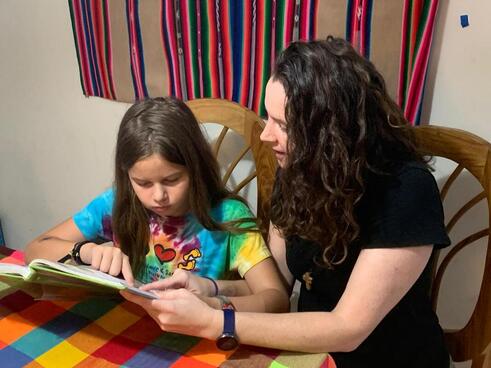 Like most of you, my family and I have been in quarantine. When El Salvador’s President Nayib Bukele first announced the prospect of a quarantine—before there were any confirmed cases here—our family decided that it would be best to practice physical distancing right away. The public hospital system here in El Salvador is precarious under normal circumstances, and once the virus is at its peak, it won’t matter how much money you have. If you require a hospital bed, you will go where there is one available. The national convention center in San Salvador is being converted into a 3,000-bed hospital, with 1,000 of those beds designated for intensive-care patients. Our best bet for surviving this pandemic is to stay home and find ways to continue our relationships with the people at our ministries without being physically present—a challenge, but also an opportunity. My ministry, the women’s cooperative ACOMUJERZA, has come to a screeching halt. We were in the middle of a huge order for the Education Ministry of El Salvador. We are sewing over 3,000 school uniforms as part of a government-funded program. This order is the biggest we have ever been contracted to make, and frankly before this pandemic our members were scrambling to figure out how we were going to sew more than 3,000 pieces in 60 days and how we were going to pay everyone to make all of those uniforms. ACOMUJERZA applied for a loan from a non-governmental organization that has helped us in the past. We received the preliminary approval for the loan, but with all of the economic uncertainty, the NGO froze all lending for the foreseeable future. ACOMUJERZA members packed up all of the finished uniforms and prepared the building for the beginning of a nationwide mandatory quarantine on Saturday, March 21. There is so much uncertainty, and yet when I talk to each of our members, they remain positive. The government has promised a government grant of $300 a month to unsalaried workers—those most in need, which applies to some of our members—but that money has not been distributed yet. With 12 days into our quarantine, I worry about how my friends at the cooperative are surviving and if they have enough food to eat. I spoke with my friend Juanita from the women’s cooperative the other day. She told me that, when she first went home after the president declared quarantine, all she wanted to do was cry. She felt depressed and sad to not be able to go to work and she felt a loss of her freedom. But after a few days, she pulled herself out of her sadness, and she told me about all of the things that she and her daughter decided to do during the mandatory quarantine. They already painted a few rooms in their house, got rid of old clothes, sewed masks and spent time tending to her garden. “Now the time just seems to be going by quickly, thanks be to God.” she said to me during our last phone call. We chatted a bit longer and before getting off the phone, she reminded me that “we are all called to do our part and, for now, our part is staying at home.” While checking over my daughter Evey’s daily journal assignment for school, I realized just how I am doing my part. She was assigned to write about what she liked and didn’t like about being homeschooled during the quarantine. She wrote, “I like homeschooling because it is fun and I get to do more fun stuff with my mom.” Maybe “doing my part” is keeping spirits up among the members of the cooperative, sharing my gifts and talents with Maryknoll Lay Missioners, spending more time with my children and modeling for them how to adjust to an ever-changing reality This blog post was re-published with permission from Maryknoll Lay Missioners. To learn more about their work and mission, please click here. To learn about other faith-based service opportunities, please click here. I would like to begin this monthly recollection talk by stating the reason why I was chosen as the preacher. Owing to the current situation of the Coronavirus pandemic, the preacher chosen for this monthly retreat, Fr. Louis Caruna SJ, Dean of the Faculty of Philosophy at the Pontifical Gregorian University (Rome), was unable to come. Incidentally, two weeks ago, I had written - in Polish - an article on Pallotti's commitment during the cholera epidemic in Rome in 1837. The rector of our community had obviously seen it, and had probably read it, so he asked me to develop it a bit more and then deliver it for the recollection. Thus, I now stand as the ‘extra cog’ – a cog as significant as the real cog for any machine, even for the machine called ‘the community.’ The following four texts served as the main sources for my reflection. They are: Francesco Todisco, San Vincenzo Pallotti: Profeta della Spiritualità di Comunione; Francesco Amoroso, San Vincenzo Pallotti: Romano; the ancient but the excellent Dizionario di Erudizione Storico-Ecclesiastica by Gaetano Moroni; and the letters of Pallotti. The 1830’s, especially the years between 1835 and 1837, were years of great suffering for Europe because of the cholera epidemic, which was then known as the ‘Asian epidemic’ because it had originally come from India (part of today’s Iraq). In previous centuries, epidemics spread from city to city starting from port cities such as Civitavecchia, Genoa and Naples. The cholera epidemic began differently when it reached some Baltic countries, such as Poland, as early as 1831. Then in 1832 the epidemic reached England; in 1833 it was brought to Ireland, Portugal and the Netherlands. It then spread to France in 1835. As the epidemic was spreading, it left behind a long trail of death (Moroni, 233-243). The spread of the disease was quick. In Italy, the first epidemic deaths occurred on September 13th, 1835. As a preventive measure to preserve the Eternal City from the disease, Pope Gregory XVI ordered, without any delay, the exposition of the most distinguished Christian relics for the common veneration in the churches where they were present. Here I want to specify the relics considered to be important for common veneration both in times of solemn and difficult occasions in 19th century Rome. These details are taken from Moroni’s book (Dizionario di Erudizione Storico-Ecclesiastica). They were: · The skulls of the apostles Peter and Paul in the Lateran Basilica; · The holy face of Veronica and the finger of St. Peter in the Vatican Basilica; · The body of St. Pius V in the Basilica of Saint Mary Major; · The Wood of the Cross and the Thorn of the Crown in the Basilica of the Holy Cross in Jerusalem; · The scourging pillar in the minor Basilica of St. Praxedes (Basilica di San Prassede); · Two celebrated crucifixes – one in St. Lawrence in Damaso (a minor basilica) and the other in the church of St. Marcello al Corso; · The imprisonment chains of Sts. Peter and Paul in the Basilica of St. Peter in Chains; · The arm of St. Roch, the protector against the plague in the church of St. Roch in Lungotevere, Ripetta; · The arm of St. Francis Xavier in the church of Gesù (the mother church of the Society of Jesus); · The bones of St. Sebastian in the minor basilica of St. Andrew of the Valley (San Andrea della Valle). Pope Gregory XVI also ordered the celebration of an extraordinary novena to be held from August 6th-15th, 1835 in all the fifteen churches dedicated to Mary [in Rome] in preparation for the feast of the Assumption of Mary, By July 31st, 1835 the Cardinal Vicar Odescalchi had published a decree L’invito Sacro (The Holy Call), which was fixed on the doors of all the churches. However, this document does not have much in common with the decrees issued by Cardinal Angelo De Donatis (also posted on church doors) on March 8th, 12th, and 13th, 2020. The decree signed by Cardinal Odescalchi reveals the 19th century mentality regarding the epidemic. I will cite a few lines: A fatal disease, which for the obscurity of its origin, for the extravagance of its progress, for the uncertainty of its attacks, appears for the believers, to have the features and signs of a scourge. Will Rome be immune from it (dispensed from it)? Oh! Romans, do not delude yourselves! Yes, Rome has failed its duty. The Holy Name of God is trampled on; feasts and solemnities are desecrated, and with what an insolence the vice roams the streets of the Holy City! So if Rome has failed its duty, it must again be scourged. Oh! Unhappy Rome, only with MARY covering the city with her mantle, the arm of the Angel of End Times that is waiting to empty the poisonous cup on the poor guilty children, can be held back. So, let us all turn to MARY. Cardinal Vicar Odescalchi had some concrete proposals. On the positive side, there was the announcement of an extraordinary novena for the occasion of the feast of the Assumption of Mary in all the fifteen churches dedicated to her. On the negative side, many public gatherings were also forbidden. Specifically, during the period of the novena, taverns, places selling alcohol and most other places of entertainment were all closed. The one exemption was coffee shops. The great Roman poet Giuseppe Gioachhino Belli composed numerous sonnets expecting to exorcise the city of the impending arrival of the virus. Some of the letters of Pallotti from this period of time reveal that he was committed to promoting the initiatives announced by Cardinal Odescalchi. Another preventive and interesting initiative started by Pope Gregory XVI was the procession with the icon of the Madonna Salus Populi Romani - that is "Salvation of the Roman People" (some translate as "Protector of the Roman People"). In fact, the pope had ordered that on September 8th, 1835 the icon of the Madonna Salus Populi Romani should be carried in procession from the Basilica of St. Mary Major (Santa Maria Maggiore) to the Vatican Basilica (San Pietro). This is the famous icon, the icon par excellence of Rome (The icon of the Eternal City), that Pope Francis kneels in front of as he starts and ends each of his apostolic journeys. The icon Salus Populi Romani has a very close connection to the history of the Eternal City and the Supreme Pontiffs. It is believed to have been painted by the St. Luke the Evangelist and it was seen as the reason for victory against epidemics and plagues as well as the reason for many other miracles. Il Diario di Roma, a periodical of the time, explained that the pope had ordered the procession to “assure the souls of the powerful protection of the great Mother of God who regards with delightful eyes this Seat of Christianity [Rome].” Unfortunately, the procession in which the pope walked barefoot was accompanied by such bad weather that this icon of the Virgin Mary was forced to stay for eight days in the New Church (Chiesa Nuova also known as Santa Maria in Vallicella). The return journey of the icon from St. Peter’s Basilica to the Basilica of St. Mary Major was also disrupted by bad weather. In its return journey, the icon Salus Populi Romani had to stay for a long period of time in the Church of Gesù. It finally reached the Basilica of St. Mary Major on September 30th, 1835. The Spread of the Epidemic: The Report of the Physicians, Newspapers and the Church: In Rome, the medical practitioners exhorted people not to be afraid and not to worry. They also forbade the public from talking about deaths and burials, believing as if optimism and joy fortified people against the attacks of cholera. In addition, the medical practitioners urged people to keep their homes very clean. The General of the Society of Jesus, Fr. Jan Roothaan (whom Pallotti knew very well), had personally vowed to celebrate the feast of The Immaculate Heart of Mary every year if the Jesuits in Rome who had given themselves generously for the care of the sick and were in the frontline fighting the contagion, were spared from the disease. Despite all these attempts, by July 1837 the fear of the epidemic had penetrated all social levels. On July 5th Fr. Vincent Pallotti began a Triduum of prayers with a particular intention seeking favors for the people of Naples, the port city where the epidemic had already penetrated. In the Triduum, Pallotti also blessed the food eaten by infected people so that they may be protected by God. On July 29th, Il Diario di Roma launched an attack on its front page on people who were spreading news about the cholera epidemic. It declared itself the right authority on the news pertaining to the spread of the epidemic and said: “[We] deny completely the ill-founded rumor already spread in Rome, that some individuals in the Capital had contracted the Asian cholera.” But the people knew better. They gave little credit to the journals. They knew very well that the newspapers and journals only intended to avoid panic in the city. On August 6th, 1837, the icon of the Virgin (Salus Populi Romani) was again brought in procession to the Church of Gesù. This event was recorded by Il Diario di Roma. According to the report, a squad of soldiers on horseback went before the procession and the procession itself was led by the pupils of the Apostolic Homes and Orphanages. Following them were members of the clergy with candles or torches. The clergy also took turns reciting the rosary. Next in the procession was the icon surrounded by some Jesuits. Everyone else was shut off by the Swiss Guards. The procession went around Via Quattro Fontane and Via del Quirinale. Pope Gregory XVI, the College of Cardinals and the senator of Rome (Prince Orsini – Duke Domenico) joined in the procession as it reached Via del Quirinale. Together, the procession moved slowly towards the Church of Gesù where the Madonna was received by the General and members of the General Curia of the Society of Jesus. The litanies were then sung, and the pope concluded the procession with the final blessing. On August 15th, a grand procession was organized from the Church of Gesù to bring the image of the Madonna Salus Populi Romani back to the Basilica of St. Mary Major (Santa Maria Maggiore). Acting on the exhortation of the Cardinal Vicar, Fr. Vincent Pallotti workedt to organize a sizable group of clergymen who would walk barefoot with him in the procession. The group started its journey from the Church of the Holy Spirit of the Neapolitans located in Via Giulia. To organize this group of religious and diocesan clergy, Pallotti made the best use of all his acquaintances. Pallotti wrote to Fr. Efisio Marghinotti, one of his friends and collaborators: “I ask you humbly, if possible, to inform many clergy of tomorrow’s barefoot procession. Also inform the Abbot Bianchini that even if he could not walk barefoot he could at least direct [the procession]. Tell everyone to get at least twelve others or more [for the procession]. We meet in the Church of the Holy Spirit.” (OCL II, p. 199) In spite of the efforts, the situation in Rome was not good. It is said that fear is the mother of all excesses. This was proved right. On the evening of August 14th, an English Language teacher was killed by a crowd of people near Piazza del Campid’oglio because the victim was believed to be an "anointer" who spread the disease by anointing people and things. The optimism advised by the medical experts was not of much use. Neither could the prayers contain the natural course of the epidemic! Finally, on August 19th, 1837 Il Diario di Roma admitted what was already evident. It said that according to the opinions of the medical doctors, the Asian Cholera had entered Rome. By the beginning of September, the Count Antonio Maria Plebani, who was residing in the region of Marche but whose son was studying in Rome, had already sent a letter filled with grievances to Pallotti. In the letter, he affirmed that there were reasons to worry this time: “cholera, earthquakes, wars, hunger …” Fr. Vincent Pallotti replied saying: “Let us seek God. Let us seek Him always and in all things. And we will find Him and in Him we will all be saved.” (OCL II, p. 206) Meanwhile, in the same period of time, Giovanni Marchetti, a married lay person and a collaborator of Pallotti from Gubbio, wrote to Pallotti asking how he could escape the epidemic. Pallotti replied advising him not to escape from God, but to look for a way to not merit punishment of God. Pallotti wrote: “Hold firm to the maxim that there is no escaping from the Divine scourge. In order to not deserve it, it is better to attend to one’s proper duties.” (OCL II, p. 208) Pallotti’s Response to Cholera: Let us now look at the response of Pallotti to the cholera epidemic. Inside the Church of the Holy Spirit of the Neapolitansthere is a plaque with an inscription bearing the works undertaken by Pallotti as the rector of the church. The inscription reads: “From 1835 to 1846, St. Vincent Pallotti, the Roman priest, was the rector of this Church of the Holy Spirit of the Neapolitans: · He founded the Union of the Catholic Apostolate. · He founded a College for the Foreign Missions. · He celebrated the First Epiphany Octave. · He celebrated the Marian Month of May for the clergy and the faithful. · He animated the spiritual conference of the clergy. · During the cholera epidemic of 1837, the people of Rome recognized in him a holy priest and in his work ‘an apostolate of charity’. In fact, during the cholera epidemic, the action of the clergy in general was exemplary. Pope Gregory XVI, who himself was old, made visits to hospitals, thus setting an example for the clergy. We should not be surprised, therefore, that during the epidemic, the charity of Fr. Vincent Pallotti and the members of the Union emerged in a special way to assist the needy in every part of the city. Already by August 19th, Pallotti requested the ministerial faculties for the forgiveness of reserved sins for his collaborators Melia and Michettoni. He asked for them in order: “to satisfy the multitude of penitents, who in the current circumstances approach the Holy Tribunal of penance in the Church of the Holy Spirit of the Neapolitans.” (OCL II, pp.200/201) Fr. Vincent Pallotti was fully committed – among many things - to assisting the sick and helping their families and also spending many hours in the confessional. Sr. Maria Colomba (a future Pallottine Sister) testified in this regard: "Several times I have seen him [Pallotti] in surplice and stole following the hearse that carried the dead." Here is another example: shortly after the end of the epidemic, Pallotti wrote to Mr. Cassini Tommaso apologizing that he was not able to visit a certain prisoner. Mr. Cassini Tommaso had asked Pallotti to visit the prisoner in Castel Sant’Angelo (The Mausoleum of Hadrian). Pallotti could not visit the prisoner because of the other works necessitated by the epidemic. “When at last I went – writes Pallotti – the person was no longer there.” (OCL II, p.234) In order to respond to the numerous appeals that Pallotti received, he divided the city into sectors, and entrusted the sectors to the members of the Union of the Catholic Apostolate. He wrote shortly after: "In the time of cholera, The Pious Society placed a small box at the entrance of the sacristy of the Church of the Holy Spirit of the Neapolitans. And it was accessible to all the poor. It was enough that the poor person wrote in a small piece of paper the name, the surname, the place of residence, the name of the parish, and the person’s need and placed it in the box. Then, two by two, the priests went to the place of the poor and cared for their needs.” (OOCC V, 139/140) The members of the Union sought to help according to the need of the place or person; some helped with clothing and others with coupons for bread and meat; some helped bring lemons to cholera patients since lemons were then considered to be the most suitable medicine for cholera. Pallotti had noted this: “The priests of the Pious Society, night and day, went to the assistance of the cholera patients. The distribution of coupons for bread and meat had been a practice since the beginning of the Union in 1835, and continues even to this day.” (OOCC V, 139-140) At last, on October 12th, the epidemic had been contained and it was declared that the epidemic had been defeated. Rome alone reported 5,419 deaths out of the population of 156,000. Among the deaths were some people who were very close to Fr. Vincent Pallotti. One such person, Blessed Anna Maria Taigi, died of cholera on June 9th, 1837. In spite of her popularity, many medical doctors did not participate in her burial. They did so in order not to infect other people with the disease. In a letter written on June 9th, 1837, Fr. Vincent Pallotti communicated the following to Fr. Felice Randanini in Vienna: “In Rome, yesterday died in secret a great Servant of God, who had been showered with many extraordinary gifts.” (OCL II, p.183) The father of Pallotti, Peter Paul Pallotti, passed away on September 15th. He had gone to the New Church (Chiesa Nuova) to pray. There, he collapsed on the ground in front of the altar of St. Philip Neri. He was immediately rushed to his home. Even before Fr. Vincent Pallotti could arrive, he died. That same day, Fr. Pallotti dispatched three letters asking for suffrages in favor of his father "to whom I owe so much" (OCL II, 206/207) As the year 1837 ended, two other deaths marked the life of Fr. Vincent Pallotti. First was the death of Fr. Bernardino Fazzini, Pallotti’s confessor for thirty years, on December 25th (Christmas Day). Second was the death of Fr. Gaspar del Bufalo, Pallotti’s friend and collaborator, and the founder of the Missionaries of the Precious Blood on December 28th, the Feast of the Holy Innocents. A few days later, in a letter to Randanini, the Secretary of the Apostolic Nunciature in Vienna, Pallotti wrote: “Today, it has been nine days since the death of the great missionary and the canon Fr. del Bufalo, and twelve days since the death of the Chaplain of the Apostolic Hospice of St. Michael a Ripa [Fr. Fazzini]. Two great saints! Pray for me that I may gain from the examples, advices, and exhortations that they gave me with their lives.” (OCL II, 232/233) The Conclusion: The Monthly Retreat – Preparation for the Good Death: And finally, I would like to highlight a theme: the preparation for death. How many of you, today, ask yourselves about the purposes of a monthly retreat? When you do that, you will find that a monthly retreat is: · A nutritious aliment for prayer · A renewed self-dedication to God · A perfect and generous push into the apostolate · A growth in fraternal love They are all true and right, but traditionally, the monthly retreat had also been thought to be, among many other things, an exercise in preparation for death. Pallotti also speaks of it in the Rule of our Congregation. In other words, we can say that the objective of a monthly retreat is to prepare our mind and heart to face death, the undeniable reality! Firstly, we need to acknowledge it! Not just acknowledge, but we also need to overcome the fear of death. Thus, when death approaches, we will be better equipped to face it. Besides, acknowledging death would help us to appreciate our daily living by providing it with more meaning and richness. We give two examples. The First Example: It is taken from a letter written by Pallotti to a lay person, Luigi Nicoletti. Nicoletti was two years younger than Pallotti and like Pallotti, a Roman. But Pallotti had high respect for Nicoletti. Nicoletti died in 1851, just a year after St. Vincent Pallotti’s death. On September 20th, 1822 during his stay in Monte Compatri with the Carmelites, Pallotti had addressed a letter to Nicoletti. I now cite a large passage from the same letter: Yesterday, as the sun was about to set, the Spirit by the infinite Mercy of God led me on a high solitary mountain [probably the 773 meter high Monte Salomone [a mountain] that is located along the road that leads from the town of Monte Compatri to the town of Rocca Priora]. Isolated from human association, looking towards heaven, I lost myself in prayer. And as I prayed, I remembered you distinctly. In fact, God had shown me that you had not gained much from the letter that you received last year from the well-known, caring and considerate Jesuit. From the letter, it was quite frightening to know that your death was close. But it was not God’s intention that you always had the thought of death on your mind so that you lived every day as the day of your death. I humbly ask you, with my face on the ground, to promise me not to spend any day without having at least for a few moments meditated on the great Principle of Death. Do not believe that this means that your passage to Eternity is near, but I say this, so that by responding to the grace of God, you will increasingly enrich yourself with the merits for Eternity. (OCL I, pp.155/156) The Second Example: As the cholera epidemic was spreading, the anxious and apprehensive Fr. Felice Randanini, the Secretary of the Apostolic Nunciature in Vienna, wrote to Pallotti several times. He felt that he had contracted the disease (cholera). But Fr. Vincent Pallotti reassured him writing: “Look for cholera as much as you want, but you will not be able to find it because it is not for you.” (OCL II, p.139) The other times when the young secretary was caught up in fear, Pallotti eased his fear by foretelling that he would see the secretary again in Rome. Pallotti wrote: “About the fear of your death, I tell you: I wait for you in Rome.” (OCL II, p.138). Pallotti wrote another time: “Be calm: cholera will not find you.” (OCL II, p.140) The secretary, accustomed more to the diplomatic language and less to the prophetic language, wondered at the certainty with which Pallotti had spoken. Once the immediate danger was over, Pallotti asked him to humble himself and to seek forgiveness for his fears and his weaknesses in the time of distress. Pallotti wrote: “Always and in every situation, you must live and should be able to say with that spirit and with that firm belief with which the Apostle Paul said: Whether we live or whether we die, we belong to the Lord. Pray that the Lord grants me the same grace even though I am not worthy of it.” (OCL II, p.143) You, [dear friends] certainly remember these famous sayings of Pallotti: “Time is precious, short, and it never comes back. I would like that time is given a high regard. I would like to insert in the faithful the highest regard for the time.” (OOCC X, 594); “Time is precious, short and irretrievable. I would like that with the grace of God I made good use of the time like a person who had come back to life from death used it to redeem the past.” (OOCC X, 553) Dear confreres, the reactions in the face of death are varied and diverse. Some confuse awe with fear as Cardinal Ravasi said very recently, “and this is the most serious mistake one is likely to commit in this time of Coronavirus”. We need to distinguish between the fear and the awe in the presence of the Lord (‘Fear of God’). What is the difference between fear and ‘Fear of the Lord’? We can very well say that fear and ‘Fear of the Lord’ are not synonyms. “The thing I fear most is fear,” said the French philosopher Michel de Montaigne. He also defined fear as the ‘bad advisor.’ ‘Fear of the Lord’ on the other hand is ‘the beginning of wisdom’ (Prov 1:7). “Come, O children, listen to me; I will teach you the fear of the LORD.” (Ps 34:11) To describe the success of the early Church, St. Luke writes in The Acts of the Apostles: “The church had peace and was built up. Living in the fear of the Lord and in the comfort of the Holy Spirit, it increased in numbers.” (Acts 9:31). In fact, ‘Fear of the Lord’ actually brings about peace. And the paradox goes even further – ‘Fear of the Lord’ exists along with love. We read similarly in the Book of Deuteronomy: “So now, O Israel, what does the LORD your God require of you? Only to fear the LORD your God, to walk in all his ways, to love him, to serve the LORD your God with all your heart with all your soul.” (Deut 10:12) Fear, on the other hand, cannot be interwoven with love. Thus writes the Apostle John in his first epistle: “There is no fear in love, but perfect love casts out fear; for fear has to do with punishment…” (1 John 4:18) On the contrary, ‘fearful respect’ for God is the source of great trust and thus wins over the fear. It is now up to you (up to all of us) to allow this teaching to transform each one of us personally and to transform the life of the community. To learn more about St. Vincent Pallotti, please click here. For more resources on the COVID-19 pandemic, please click here. When I made the shift to working from home almost a month ago, I was excited for a change of pace: sleeping in, a 30-second commute from my bed, working in pajamas all day, not packing a lunch. But when it came down to it, I became restless and had trouble settling down. Focusing on work was difficult. Being productive did not come easy, with my mind wandering for much of the workday. I had embraced the idea of a change of pace, but not the realities of what that change really meant.
Prayer, when I remembered to make time for it, was similarly difficult to settle into. It took me some time to realize what was happening, in part because I work in a secular field. Since I don’t spend my workdays in the Church sphere, I don’t have many explicit or subtle reminders that point my day toward God. Meetings don’t begin with a prayer. My daily tasks and conversations with colleagues don’t revolve around Church activities and ministry. I don’t interact with my pastor or bishop over the course of my day. And though I’ve made an effort over the years to weave prayer and reminders of God into my daily life, my routine has been disrupted. So, naturally, my prayer life has gone out the window. Another piece to mention is that I live alone. Normally, I have a number of social engagements in the evenings and on weekends, often with Catholic friends. Our interactions have a shared Catholic identity baked in and serve as additional reminders of faith. Now that I’ve been largely alone for a month, my days seem to blur together. It's become easy to turn in on my own thoughts and seek out distractions to numb the collective grief we’re all feeling: the loss of normalcy and a sense of security, cancelled plans, and the uncertainty of when we’ll return to some semblance of normal. And in the midst of that, I forgot to pray. It dawned on me that I’ve been given an opportunity and a challenge: I’ve been thrust into an unchosen solitary monastic existence. I have the once-in-a-lifetime chance to completely re-invent what “normal” looks like for me in almost every way. While I owe the company 8 hours of my day, 5 days a week, everything else is mine to do with as I wish. I have a blank canvas. I don’t have to dress for work, shave, or drive to and from the office. I don’t have a spouse or children to care for, no roommate, and no one to interact with here in my home... except God. If I choose to, I can rebuild “normal” with a different foundation and framework, one centered on God. But I don’t have to be a full-time hermit in order to do this well. It’s a lesson that came to me in the midst of prayer and reflection during the Paschal Triduum. Something in me tends to go too hard during Holy Week, especially on Good Friday, and I feel a need to do as much as I can to enter into the sacrifice of Calvary in solitude. Once the quiet of Holy Saturday came around, though, I realized that in the inner urgency to “do” Holy Week so well on my own, I’d forgotten to “be” in the presence of God. Here I was, waiting for Easter with nothing left to do and no one to do it with. All the prayers and meditations had been said, all the fasting was ended, and all I could do was sit and wait. It was a striking reminder that, oftentimes, we need to just be and make room for God to do some work in our lives. Archbishop Wilton Gregory, in his homily on Easter Sunday, noted how important the concept of time is to the story of our salvation, and that Easter “resets the clocks and calendars of our lives.” It's especially true in these days of being forced to reduce the externals. We have an opportunity and a choice here: to either enter into the quiet and craft something meaningful in our lives, or to just make more noise to drown out the vastness of that quiet. We’ve been making a lot of noise lately, often without realizing it. Thank God for the recent reminders of the power of the phrase, “Be still and know that I am God.” May we all take advantage of this opportunity to hit “reset” and allow God to direct us in those quiet moments. When we re-enter the world in a “new normal”, may we use the lessons from this time of isolation to shape what that normal really ought to look like. Jay Schaefer is a Professional Engineer in Baltimore, working to maintain and improve the region's transportation infrastructure. He sings in his parish choir and is involved with the Knights of Columbus. Jay is also a former staff member and current collaborator of the Catholic Apostolate Center. |
Details
Archives
July 2024
Categories
All
|
About |
Media |
© COPYRIGHT 2024 | ALL RIGHTS RESERVED

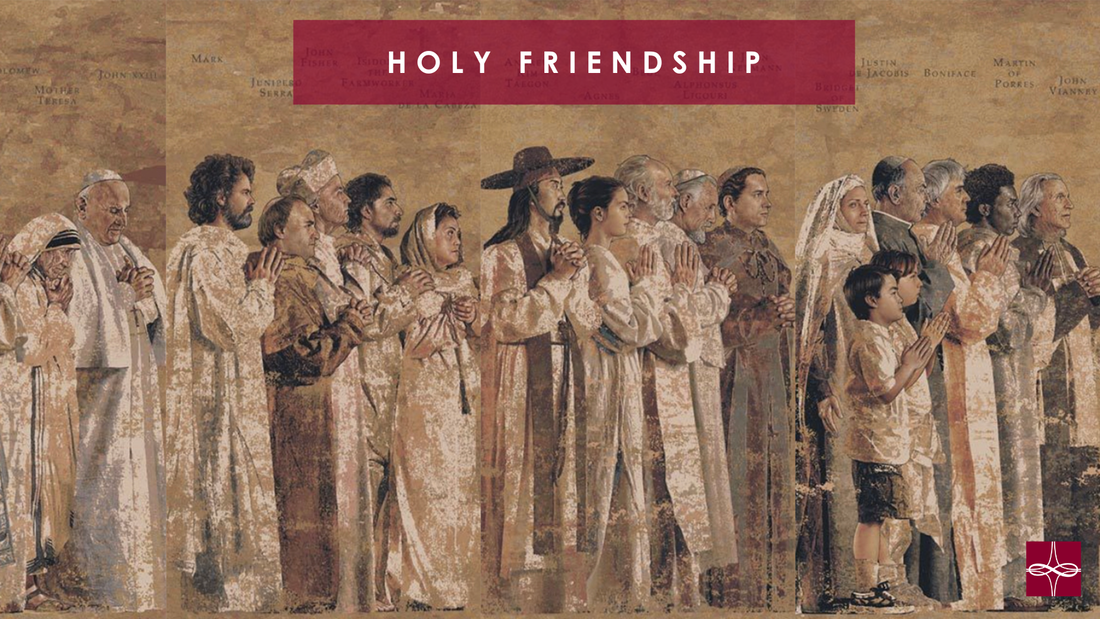
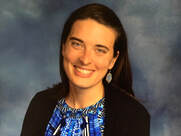

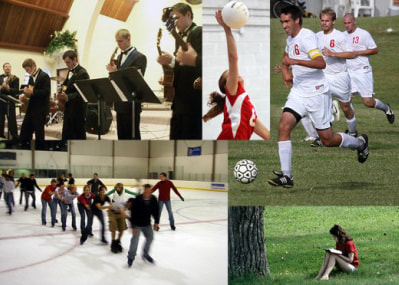
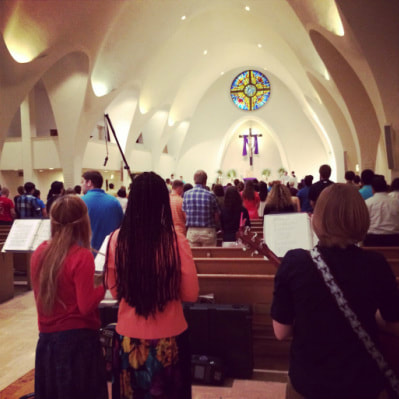



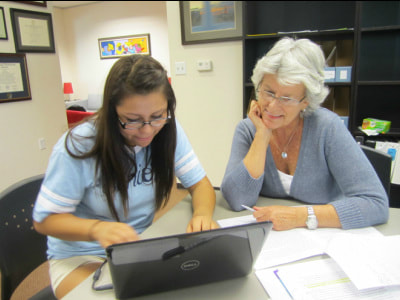
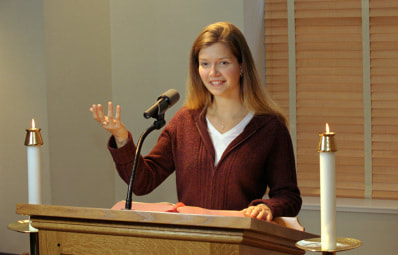
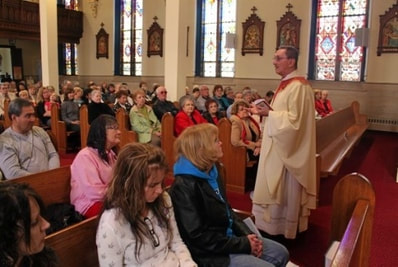
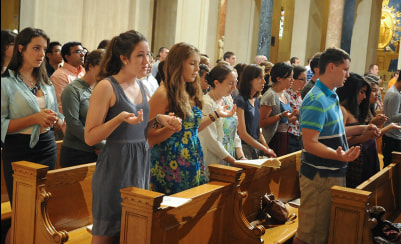

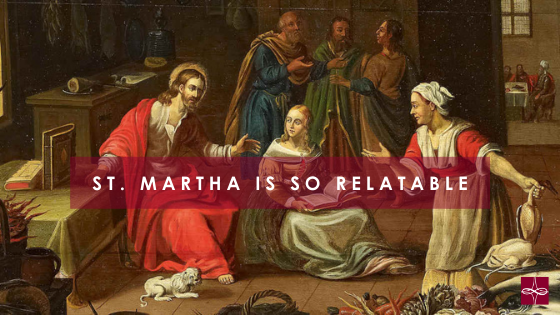

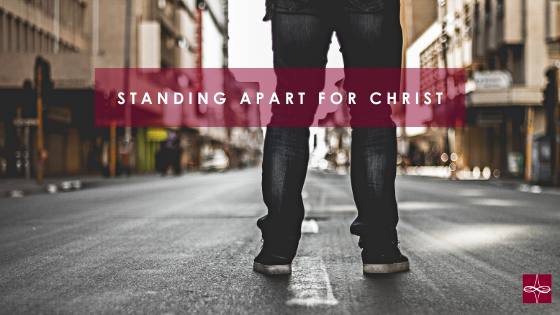

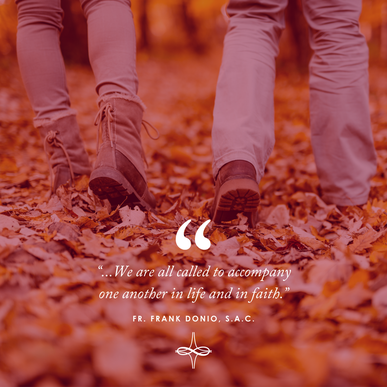
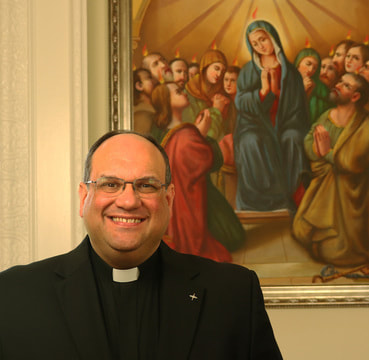



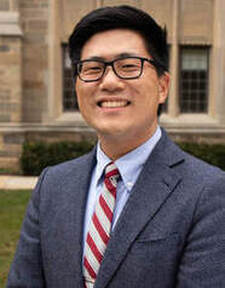
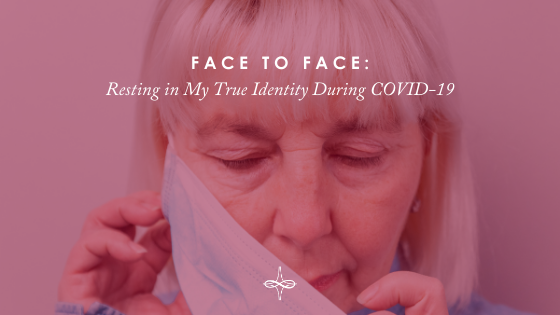





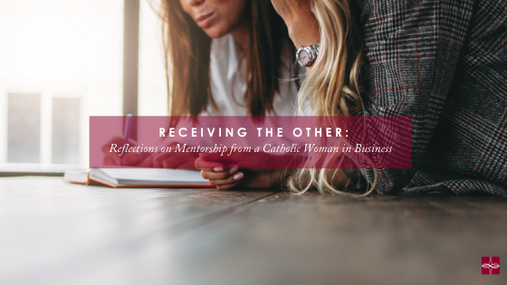
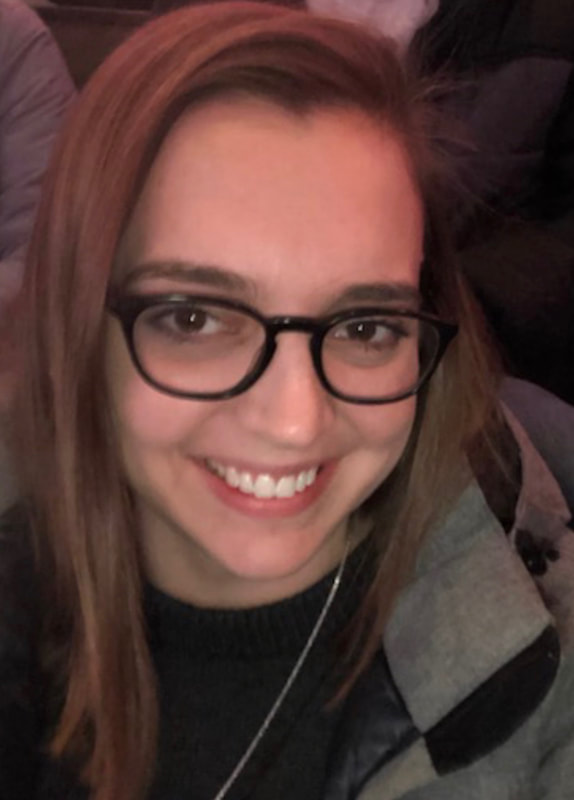


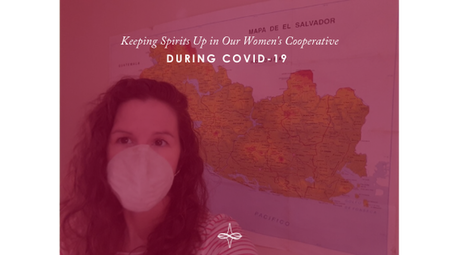

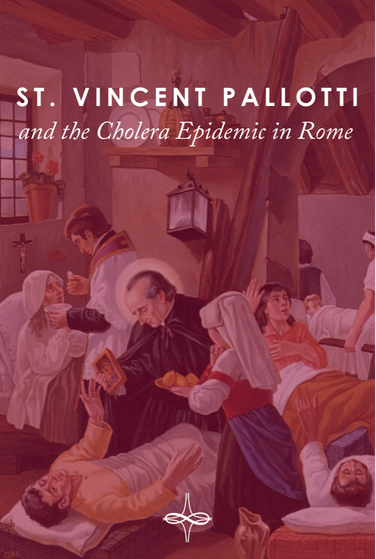
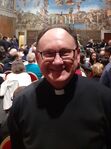
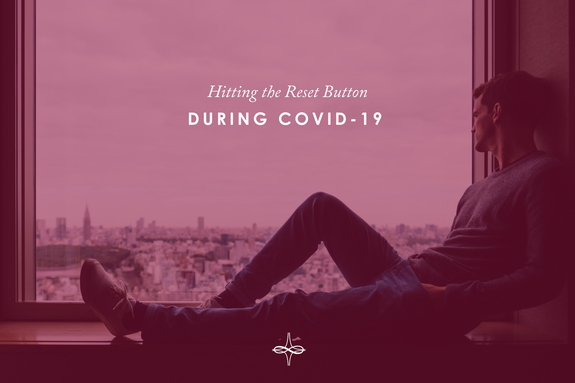
 RSS Feed
RSS Feed